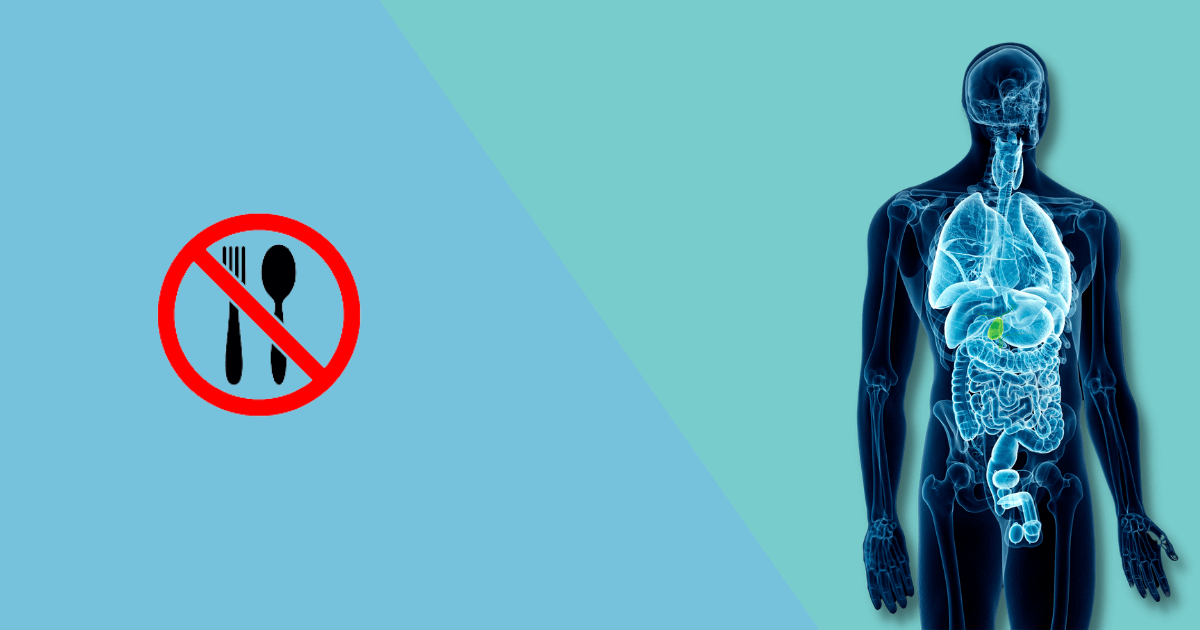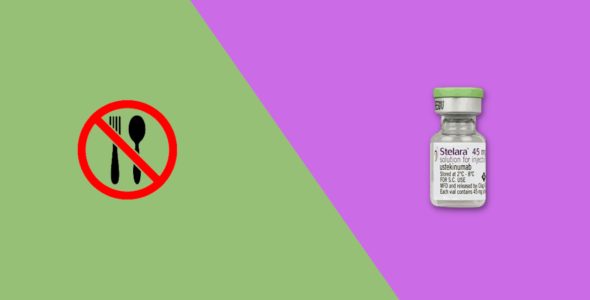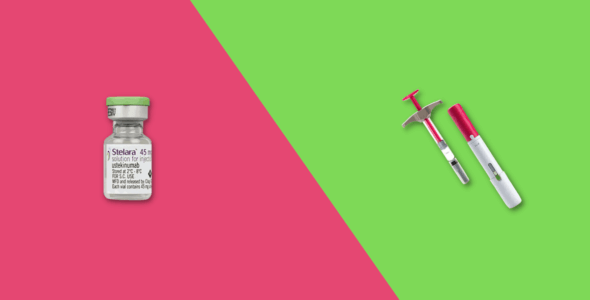What foods to avoid with Crohn’s disease
Table of contents
Crohn’s disease can create problems for people experiencing a flare-up when it comes to eating, as certain foods may make their symptoms worse. Symptoms during a flare-up include diarrhea, nausea, and stomach cramping.
Here we will discuss what Crohn’s disease is, the treatments available, how to manage a flare-up, and suggestions for a daily diet.
What is Crohn’s disease?
Crohn’s disease is classed as a type of inflammatory bowel disease (IBD). It causes inflammation in your digestive tract (mainly the small intestine), leading to abdominal pain, severe diarrhea, weight loss, tiredness, and malnutrition. There is no known cure for Crohn’s disease, but treatments can reduce your symptoms and bring about long-term remission and healing of the inflammation.
Symptoms
Crohn’s disease can affect any part of your digestive system. Symptoms can range from mild to severe, and develop gradually, but sometimes will come on without any warning. Symptoms include:
- Gastrointestinal symptoms – chronic diarrhea, abdominal pain, bloating, and cramping
- Fever
- Tiredness
- Blood in your stool
- Mouth sores
- Reduced appetite and weight loss
- Pain or drainage near or around the anus
If you suffer from severe Crohn’s disease you may also have symptoms outside of the intestinal tract, including:
- Inflammation of skin, eyes, joints, liver or bile ducts
- Kidney stones
- Anemia
- Delayed growth or sexual development, in children
See a registered dietitian for medical advice if you have persistent symptoms.
Treatment for Crohn’s disease
There are a range of drug classes available for the treatment of Crohn’s disease. These include corticosteroids, immunomodulatory, and biologics drugs.
Treatments such as Humira, Remicade, and Stelara all help to reduce inflammation in the body and are used for the treatment of a variety of conditions such as rheumatoid arthritis, psoriatic arthritis, ankylosing spondylitis, and plaque psoriasis, as well as Crohn’s disease, juvenile idiopathic arthritis, ulcerative colitis, and uveitis.
Your doctor will decide which medication is the most appropriate for you based on your age, medical condition, and your symptoms.
What foods should I avoid with Crohn’s disease?
Doctors and dietitians will recommend you avoid high-fiber foods and foods known to stimulate the gut, such as spicy foods, during a Crohn’s disease flare-up. Foods to avoid include:
- Beverages – alcoholic, caffeinated, carbonated, or highly sweetened
- Bread and starches – brown rice, cereals containing nuts, dried fruit, or seeds, quinoa, whole grain bread, crackers, bran cereal, pasta
- Dairy products – Crohn’s disease can also cause lactose intolerance, the inability to digest sugar in milk and other dairy products. Avoid cheeses containing nuts or seeds, and yogurts containing fruit skins
- Fats – coconut, nuts, salad dressings with poppy seeds
- High-fat foods – butter, margarine, or any deep-fried food items
- Fruit – raw fruit and fruit juices with pulp, dried fruit, and prune juice. Ripe bananas, melons, and apples with the skin removed are safe to consume during a flare-up
- High fat and high fiber protein sources – beans, fried eggs or meat, salami, chunky nut butter with seeds, and peas
- Sweets and desserts – foods containing bran, cookies, candy, cakes, pastries, fruit juice with added sugar, ice cream, dried fruit, jams, and raisins
- Vegetables – beets, broccoli, cabbage, greens, onions, parsnips, peppers, and spinach
Eating when in remission
Remission is when your symptoms have subsided, or even disappeared. Foods that can help you stay healthy and hydrated include:
- Fiber-rich foods – oat bran, beans, barley, nuts, and whole grains
- Lean Protein – lean meats, fish, eggs, nuts, and tofu
- Fruits and vegetables
- Calcium-rich foods – collard greens, yogurt, kefir, and milk
- Food with probiotics – yogurt, kimchi, miso, sauerkraut, and tempeh
Food and drinks to consume during a flare-up
Crohn’s disease or ulcerative colitis can cause serious complications, including nutrient deficiencies, weight loss, and malnutrition.
The Crohn’s and Colitis Foundation recommends a low-residue diet plan, similar to a low-fiber diet, that also limits foods that reduce the amount of solid waste in your stools. A low-residue diet helps your bowel rest and recover because the intestinal tract does not have to work as hard to digest foods. You should otherwise aim to eat a balanced diet with adequate amounts of fiber.
- Beverages – decaffeinated drinks, low sugar rehydration drinks, water
- Bread and starches – low-fiber bread and cereal options such as bread made with white, refined, or all-purpose flour, refined cereals such as grits or puffed rice, and white rice
- Dairy products – if dairy products do not worsen your symptoms you may eat 2 servings or less of cheese, milk, or yogurt with live active cultures
- Fruit – canned fruit, except for cherries or berries, peeled apples or applesauce, pulp-free fruit juices, ripe bananas or melons
- Proteins – eggs (where the yolk is solid), fish, poultry, and soy products, protein shakes, or oral protein supplements
- Vegetables – asparagus, canned vegetables without seeds, well-cooked vegetables, eggplant, potatoes without the skin, and pumpkin
The Ulcerative Colitis & Crohn’s Disease Cookbook has more than 170 recipes for people living with Crohn’s disease or IBD. The Low Residue Diet Cookbook also has many low-residue diet recipes.
Your doctor may recommend taking vitamins, such as folate, vitamin B6, and vitamin B12 during a flare-up. You may also take the medication methotrexate during a flare-up. Talk with your doctor about folic acid supplementation if a healthcare professional prescribes methotrexate.
Will going gluten-free help with my Crohn’s disease?
Research does not suggest that eating gluten-free could improve your Crohn’s disease symptoms. Consult your doctor if you are considering a gluten-free diet.
Diet tips and preventing flare-ups
There is no single food group linked to every case of Crohn’s disease. Different foods may irritate the gut and cause inflammation in different people. Diet tips include:
- Eat several small meals daily instead of large meals
- Drinking plenty of water throughout the day
- Add fiber sources slowly
A food journal may be helpful to identify your trigger foods. Triggers may include lactose or certain carbohydrates. Also, note any stressful events or periods of anxiety, as these too can bring about flare-ups. Discuss specific recommendations with your doctor or nutritionist regarding your diet and develop a healthy eating plan.
Medically reviewed
A medical professional has reviewed this article.


Jamie Winn, PharmD
Jamie Winn, PharmD
Dr. Jamie Winn received his Doctor of Pharmacy in 2002 from the University of South Carolina College of Pharmacy, Columbia, SC. Jamie is a medical reviewer for NiceRx.



